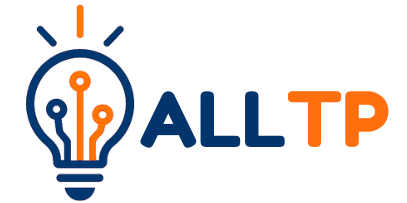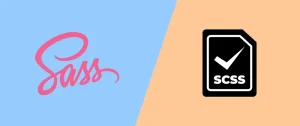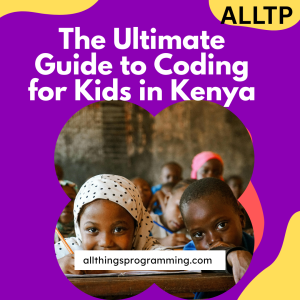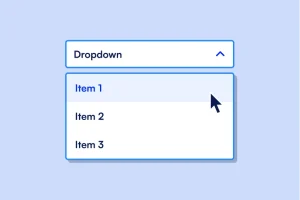Kenya’s Competency-Based Curriculum (CBC) aims to prepare students for a digital future. It emphasises creativity, critical thinking, and problem-solving, skills that coding powerfully nurtures. Yet, despite these national ambitions, a major obstacle remains: affordability.
For many schools, especially in rural or underfunded areas, tight budgets make it hard to implement effective coding programs. The high cost of imported curricula, proprietary software licenses, and unreliable internet access further limit access to quality computer science education.
Many solutions currently on the market weren’t built with Kenyan classrooms in mind. They assume constant connectivity, modern devices, and favorable teacher-to-student ratios, conditions not always present in Kenyan schools. In the growing landscape of Coding in Kenya, local initiatives play a crucial role in bridging these gaps.
Ready to bring coding to your classroom? Explore All Things Programming, a trusted local program that offers an affordable, CBC-aligned coding curriculum tailored for Kenyan learners and educators.
Our resources are designed to work well in diverse classroom settings and help teachers confidently deliver quality coding education.
The Budget Concern in Kenyan Schools
Limited Financial Resources in Public and Private Schools
One of the biggest hurdles Kenyan schools face in adopting coding education is the reality of tight budgets. Public schools, community schools, and even many private institutions, particularly those in rural or underserved areas, often operate with limited financial resources. Their priority budgets tend to focus on basic needs such as infrastructure, textbooks, and teacher salaries, leaving little room for new and specialized programs like coding.
High Costs Associated with Implementing Coding Programs
Implementing coding programs comes with several costs that can strain these limited budgets. Schools must consider expenses for purchasing or licensing appropriate curriculum materials, acquiring the necessary hardware such as computers or tablets, and installing reliable internet connectivity.
Additionally, specialized ICT staff or coding instructors are often needed to effectively deliver coding lessons. There are also ongoing costs for teacher training and software updates that ensure the program stays relevant.
The Dilemma: Balancing Quality Education and Budget Constraints
This financial reality creates a dilemma: schools want to provide their students with crucial digital skills but face the challenge of doing so without further stretching already constrained budgets. Without affordable, practical solutions tailored to their unique needs, many schools risk falling behind in delivering quality coding education.
Why Affordable Coding Curriculum is Essential
Building Critical Skills for the Future
Coding education offers far more than just the ability to write computer programs, it fosters creativity, critical thinking, and strong problem-solving skills. These competencies are crucial not only for success in technology-related fields but also for preparing students to navigate a rapidly changing workforce.
As Kenya continues to develop its digital economy, young learners equipped with coding skills will be better positioned to seize future job opportunities and contribute meaningfully to innovation and growth.
Addressing Educational Inequality
However, without access to quality coding education, many students risk being left behind in this digital revolution. The divide between well-resourced urban schools and underfunded rural schools threatens to widen, potentially limiting equal opportunity for all learners across the country.
The Need for a Cost-Effective and Scalable Solution
To ensure that every Kenyan student can benefit, there is an urgent need for a coding curriculum that is affordable, scalable, and sustainable. Such a curriculum must be adaptable to diverse school environments, align with national education standards, and minimize costs without compromising quality. Only then can coding education become an accessible reality for all Kenyan schools.
Introducing All Things Programming: A Solution for Kenyan Schools
A Kenyan Initiative Focused on Accessibility and Affordability
All Things Programming is a Kenyan initiative dedicated to making coding education accessible and affordable for schools across the country. Understanding the unique challenges faced by Kenyan schools, All Things Programming offers a curriculum specifically tailored to meet local educational standards and needs.
Curriculum Aligned with Kenya’s Competency-Based Curriculum (CBC)
The curriculum is carefully designed to align with Kenya’s Competency-Based Curriculum (CBC), ensuring that it supports the national goals of fostering creativity, critical thinking, and digital literacy among learners. Rather than relying solely on theoretical concepts, the program emphasizes practical, hands-on coding activities that engage students and build real-world skills.
Age-Appropriate and Progressive Learning Materials
Age-appropriate materials and lessons allow learners from early primary levels through secondary school to develop their coding abilities progressively. This approach not only makes coding enjoyable and relatable but also equips students with a solid foundation to thrive in Kenya’s growing digital economy.
Free Teacher Training to Build Capacity
The Importance of Teacher Preparedness
The success of any coding program heavily depends on the preparedness of teachers. Well-trained educators are essential to delivering engaging, effective coding lessons that inspire students and build their skills. However, many Kenyan schools struggle with a shortage of specialized ICT staff, making teacher readiness a significant challenge.
Free Practical Training for Existing School Staff
Recognizing this, All Things Programming offers free, practical teacher training designed to empower existing school staff. Through hands-on workshops and continuous support, teachers gain the confidence and knowledge they need to teach coding effectively, without the need to hire additional ICT specialists.
Building a Sustainable Model for Coding Education
This approach not only helps schools maximize their existing human resources but also ensures a sustainable model for coding education. By building the capacity of teachers already in the classroom, All Things Programming helps schools overcome staffing hurdles while maintaining high-quality learning experiences for students.
Offering Trained Teachers to Schools Without Coding Staff
For many schools, the absence of specialised coding teachers can delay or even prevent the introduction of coding programs. To bridge this gap, All Things Programming provides access to trained coding teachers who can be deployed directly to schools that lack in-house ICT staff.
This service enables schools to start coding classes immediately without the financial burden or administrative hassle of recruiting and hiring new personnel. By leveraging All Things Programming’s pool of qualified educators, schools gain instant access to experienced teachers who understand the curriculum and local learning context.
Moreover, All Things Programming offers flexible and affordable pricing plans designed to accommodate the diverse budgets of Kenyan schools. This ensures that even schools with limited financial resources can provide quality coding education, leveling the playing field and expanding opportunities for students nationwide.
Cost Savings and Efficiency for Schools
Reducing Payroll and Recruitment Costs
Implementing coding programs through All Things Programming offers significant cost savings and operational efficiencies for schools. By eliminating the need to hire new specialized ICT staff, schools reduce payroll expenses and avoid the time-consuming process of recruitment and training. This allows them to allocate scarce resources more effectively.
Minimizing Costs on Curriculum and Software
Additionally, All Things Programming’s curriculum minimizes costs by avoiding expensive proprietary software or imported materials. Schools gain access to locally tailored, relevant content without the burden of costly licenses or subscriptions.
Sustainable Support and Improved Return on Investment
With ongoing support and curriculum updates provided at a low cost, schools can maintain high-quality coding education sustainably. This approach delivers an improved return on investment, not only for school administrators managing budgets but also for parents seeking valuable skills for their children’s future.
Conclusion
As Kenya moves toward a digital future, affordable and accessible coding for beginners programs is no longer a luxury but a necessity. Budget constraints and resource limitations should not prevent schools from equipping learners with essential digital skills.
All Things Programming stands out as a practical, affordable solution designed to meet Kenyan schools’ unique needs. By offering a curriculum aligned with the national CBC, free teacher training, and access to trained coding educators, it empowers schools to deliver quality coding education without straining their finances.
For schools ready to embrace the digital revolution and prepare students for tomorrow’s opportunities, partnering with All Things Programming is a smart and sustainable choice. Get in touch today for a free demo and to understand how our program can integrate into your existing infrastructure.




